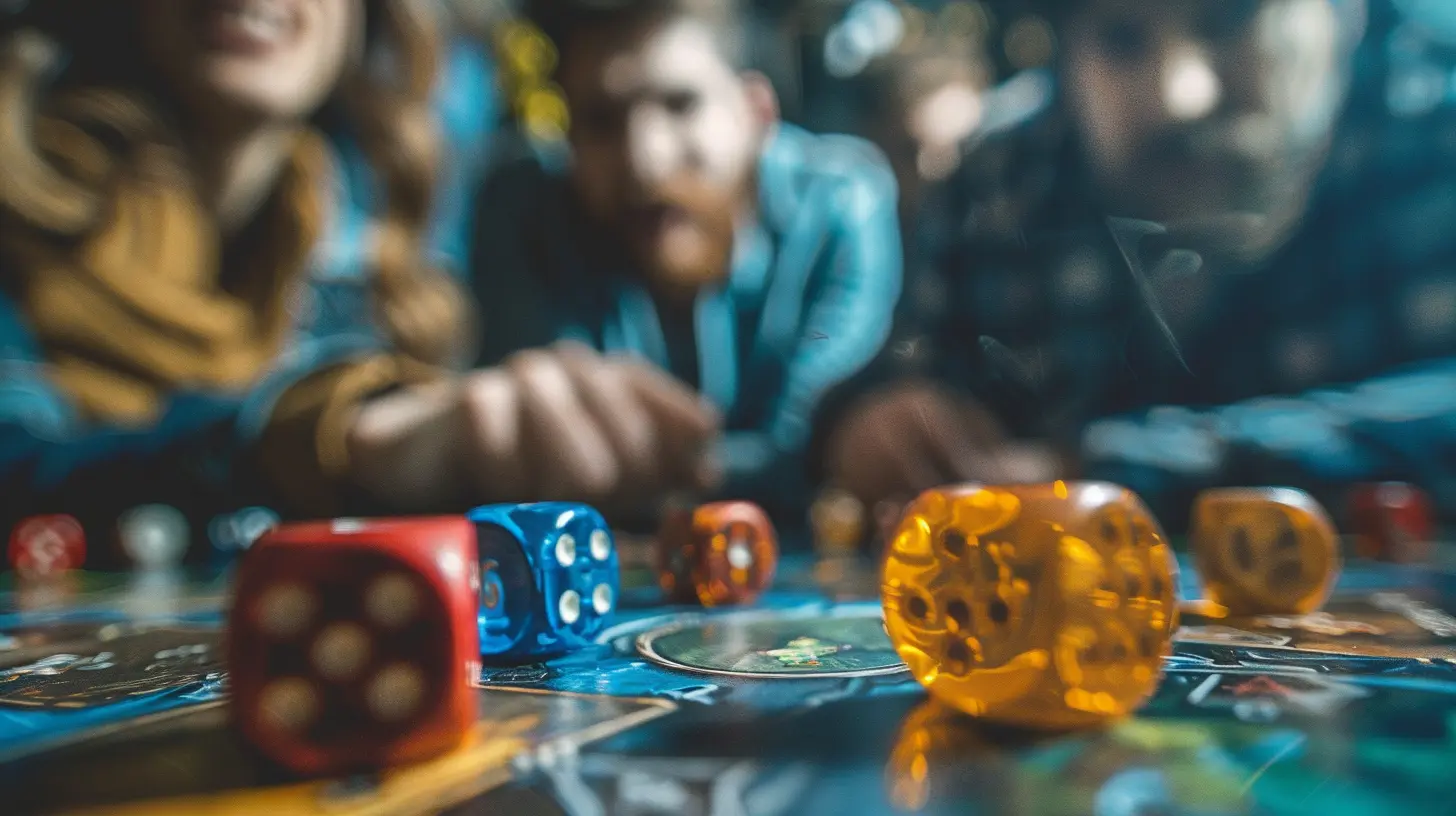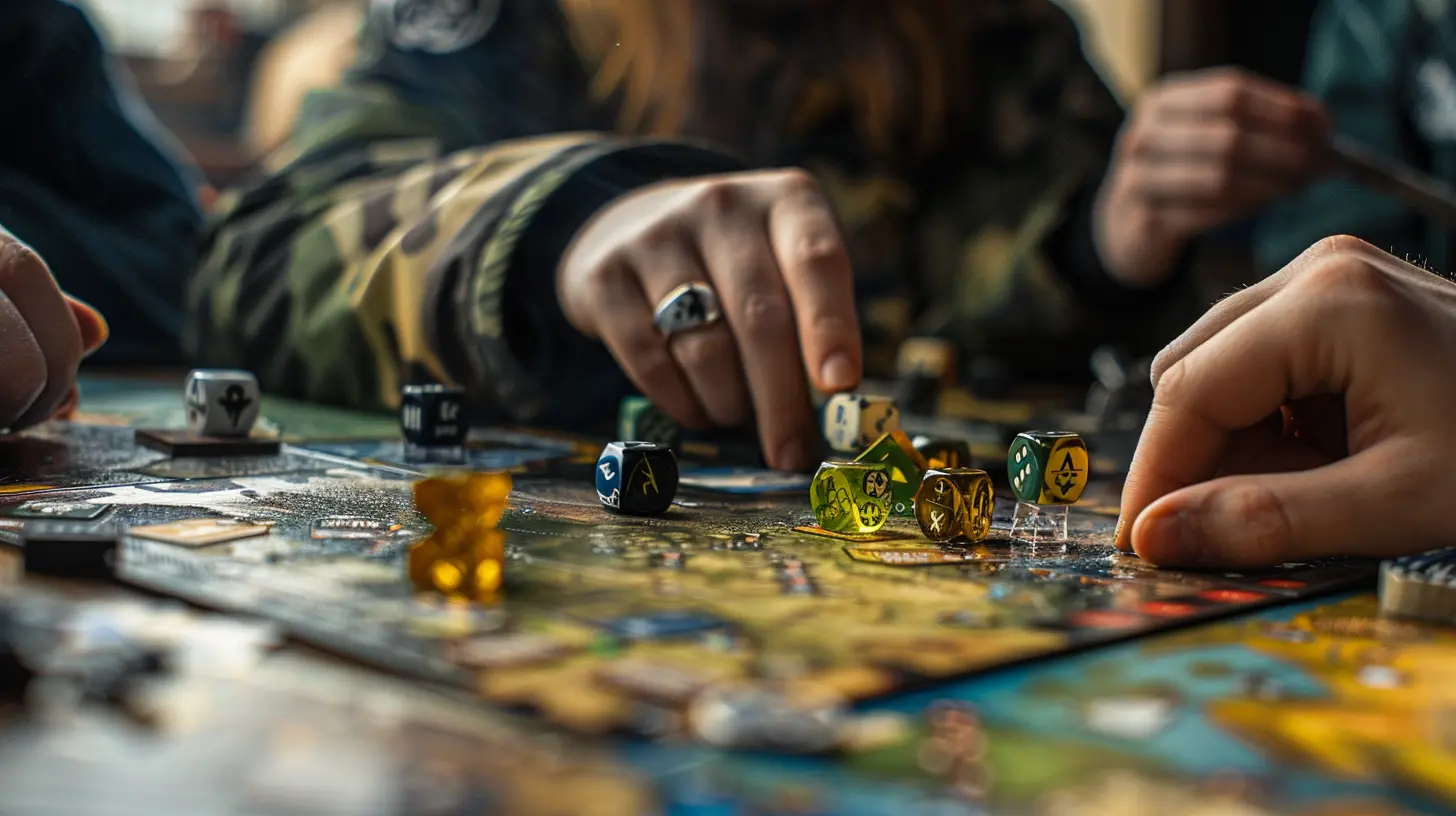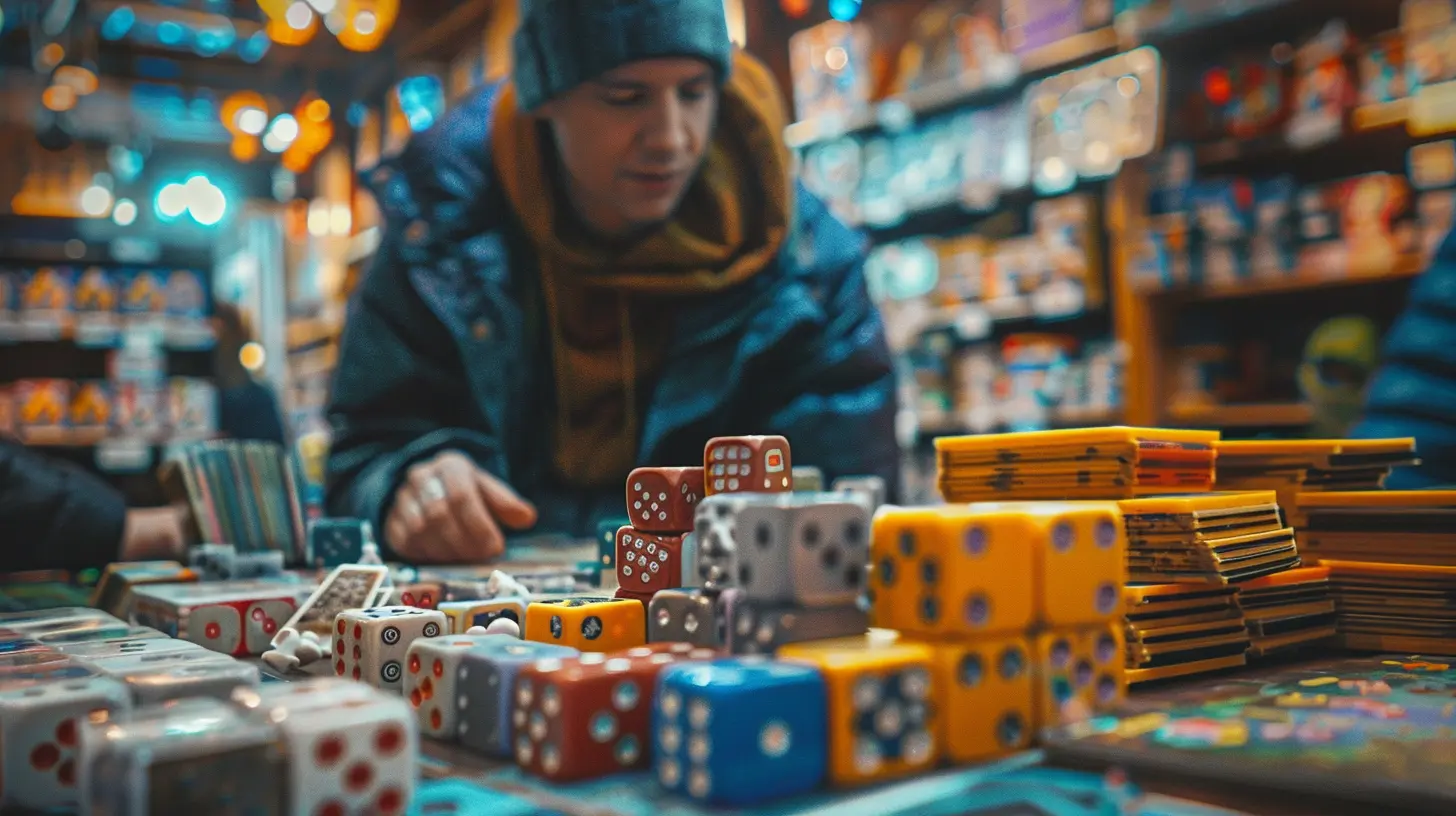13 March 2025
When it comes to board games, there's an unspoken magic that happens when players come together to share strategies, tackle challenges, and strive for a common goal. But in the world of cooperative board games—where it's all about teamwork—there’s one element that stands above all else: trust. Trust isn't just a "nice-to-have"; it's the secret sauce that can make or break your gaming experience.
If you're the kind of person who dives into forbidden dungeons, saves the world from impending doom, or tries to survive against hordes of zombies with your friends on a game night, you’ve probably felt the weight of trust's importance. But why exactly does trust matter so much? And how can you wield it as your greatest weapon? Let’s talk about it.
The Role of Trust in Cooperative Games
Imagine this. You're sitting around the table playing a cooperative board game like Pandemic. The world’s fate is in your hands, and your team is one move away from either curing the last disease or watching humanity collapse (again). Every turn relies on strategic decisions, open communication, and yes—trusting your teammates' judgment.In cooperative games, trust isn't just about believing someone will play their turn correctly. It's about relying on their instincts, accepting their strategies, and sometimes even taking risks in their favor. Trust fuels every discussion, shapes every alliance, and determines whether your table erupts in cheers or groans.
But here’s the thing: trust doesn't come naturally in board games. After all, the stakes feel high, and players may get skeptical. What if someone makes an obvious mistake? What if they interpret the rules differently? What if, deep down, you think your plan is better?
Spoiler alert: without trust, you're going to have a rough time.
Why Trust Transforms Gameplay
Let’s get real: cooperative board games without trust are like a sinking ship without a captain. Trust is the glue that holds the team together. Without it, you’ll likely just bicker, second-guess, and spiral into chaos. Here's how trust elevates your gaming experience:1. Enhances Team Coordination
Think of trust as the Wi-Fi connection of your team dynamics. Without it? Total disconnect. When trust levels are high, players are more willing to communicate openly, share ideas, and work toward the same goal. Trust ensures everyone’s on the same page when formulating a strategy—even when you disagree.If you’ve ever played Arkham Horror or The Crew: Quest for Planet Nine, you know how crucial trust is when dividing tasks. It’s the ability to believe that someone else can handle their role while you focus on yours. That’s the very foundation of how cooperative games function.
2. Reduces Analysis Paralysis
Ever encountered a teammate who takes forever to make their move? (Don’t lie—we all know one.) Analysis paralysis is a common problem in complex games, but you’d be surprised how trust can alleviate it. When you have confidence in your teammates’ skills and decision-making abilities, you’re less likely to doubt their choices or get bogged down by overthinking.Trust helps move the game forward. Instead of endlessly debating, you’ll rely on each other’s experience and intuition to make quicker, more efficient decisions. That fast-paced cooperation isn’t just satisfying—it’s essential for survival in time-crunched games like Escape: The Curse of the Temple.
3. Makes Negotiation Easier
Negotiation and persuasion often come into play in cooperative board games, especially ones with hidden roles or trading mechanics (Spirit Island, anyone?). Trust streamlines those interactions. If your teammates trust your intentions, they’re more likely to back your plans or grant you extra resources when it matters most.Plus, let’s not forget the emotional element. Bluffing or withholding information becomes less effective if your group doesn’t trust one another. Trust ensures that even tricky negotiations feel fair.
Building Trust With Your Teammates
Alright, so we’ve established that trust is king in cooperative board games. But how do you actually build trust with your gaming group? Here are some practical tips:1. Start by Being Transparent
Honesty is the foundation of trust. Be upfront about your game knowledge (or lack thereof). If you’re a rookie with no idea how to play, don’t fake it—say so! Trust grows when people feel they can rely on your authenticity.Also, share your thought process during your turns. Let teammates understand why you're making certain moves. This transparency not only fosters trust but also helps avoid misunderstandings.
2. Be a Good Listener
Listening might seem obvious, but it’s often overlooked. In cooperative games, you’re not just playing for yourself; you’re playing for the team. Make an effort to listen to everyone’s input without interrupting or dismissing them.When players feel heard, they’re more likely to trust your intentions, even when disagreements arise. Remember, a weak link in communication can spell disaster for the entire group.
3. Learn From Mistakes
Mistakes are inevitable in board games. Whether someone forgets a rule, misjudges a move, or accidentally sabotages the team (oops), the key is to learn and move on. Hold grudges, and trust will erode fast.Instead of pointing fingers, offer constructive feedback. For example, say, "Maybe next time we can try this approach" instead of "Wow, you really messed that up." Keep the tone supportive and solutions-based.
4. Celebrate the Wins Together
Nothing builds camaraderie like a shared victory. Celebrate as a team—no matter whose strategy ultimately led to the win. Even if you lose, focus on what went well and acknowledge everyone’s efforts. Positive reinforcement strengthens trust for future games.
When Trust Is Tested
Not every game night is smooth sailing. Sometimes, tension rises, and trust falters. Maybe someone’s ego gets in the way, or a hidden role mechanic (Betrayal at Baldur’s Gate, I’m looking at you) throws a wrench in the works. These are the moments when trust really gets tested.Here’s the trick: don’t take things personally. What happens in the game stays in the game. If someone breaks trust for the sake of a plot twist or strategy, shake it off. The beauty of cooperative board games lies in their unpredictability. A little chaos keeps things exciting.
The Trust Factor in Legacy Games
If you’ve ever played a legacy game like Gloomhaven or Pandemic Legacy, you'll know that trust takes on a whole different dimension. These games often span multiple sessions, with decisions carrying long-term consequences. Trust becomes not just a tactical tool but a deeply personal commitment.Legacy games challenge you to build (or rebuild) trust over time. Betrayals feel more dramatic, alliances grow more meaningful, and every shared moment strengthens the bond between players. If cooperative board games are like a sprint, legacy games are a marathon—and trust is the endurance that keeps you going.
Trust: The Invisible MVP
So, why is trust your greatest weapon in cooperative board games? Because without it, you’re just a bunch of individuals pushing tokens around a board. With it, you become a unified force capable of tackling even the trickiest challenges.Trust turns teammates into collaborators, decisions into collective triumphs, and ordinary game nights into unforgettable adventures. It’s the intangible quality that makes cooperative games more than just games—it makes them stories worth sharing.
The next time you sit down for a cooperative board game, think about how you can build and nurture trust with your group. You might just find that trust is the real game-changer.






Flynn McNair
Trust: the secret sauce in cooperative board games! It’s like a unicorn on a unicycle—rare, magical, and essential for navigating the chaos of victory together!
March 31, 2025 at 4:55 PM